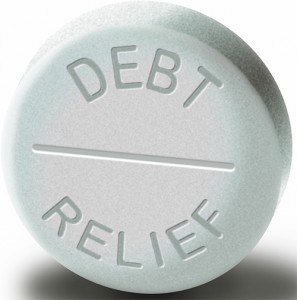 A secured credit card functions in the same manner as a regular credit card. The only exception being that the card is secured by the amount of deposited funds that remain safeguarded in the institution where the individual acquires the card. The card looks like a regular credit card and acts like a traditional credit card. Purchases are limited by the amount of funds backing the card. The majority of institutions require a minimum secure balance of $500. However, individuals or businesses may deposit more if desired.
A secured credit card functions in the same manner as a regular credit card. The only exception being that the card is secured by the amount of deposited funds that remain safeguarded in the institution where the individual acquires the card. The card looks like a regular credit card and acts like a traditional credit card. Purchases are limited by the amount of funds backing the card. The majority of institutions require a minimum secure balance of $500. However, individuals or businesses may deposit more if desired.
Who Uses a Secured Credit Card?
The card might be used by anyone with a past or current history of bad credit. When first starting out, many young people or students have no line of credit. The card might serve as a means of establishing a credit history. Someone recently moving to Canada, having recently undergone bankruptcy or having difficulty obtaining a conventional credit card may also look into acquiring a secured card.
Newlyweds starting a life together often look for ways of establishing credit. Anyone having endured a divorce or the death of a spouse may also need to start over and rebuilding credit. Entrepreneurs having difficulty getting financial backing or searching for a means of creating a financial history might also be interested in securing a card.
Benefits of a Secured Credit Card
Getting approved for a secured card is practically guaranteed. Having a card eliminates the need to withdraw and carry cash. However, in case someone needs cash for an emergency, the card enables users to get cash advances. Numerous other conveniences of having a credit card include using the card for making reservations, purchases or services rendered.
A secured credit card offers an ideal way to establish or improve credit scores, which are typically required when needing to apply for loans. By making monthly payments for goods or services, in the same way that one would if having a traditional credit card, you can learn how to create and stick to a budget.
Many secured credit cards don’t carry the same fees that are required by traditional cards so using them is not only convenient but less expensive.
Ensuring Good Credit
After applying for and acquiring the credit card, maintaining good credit means:
i. Paying off the balance monthly
ii. Paying more than the minimal monthly amount required
iii. Making payments on time
Get a Secured Credit Card Today
Regardless of your current financial situation we can help. To find out more about secured credit cards, and even to apply for a secured credit card, click on this link for the application form. If you are experiencing financial problems, contact Ira Smith Trustee & Receiver Inc. We are a licensed trustee and will listen to your issues and provide compassionate, professional assistance to assist you to avoid bankruptcy.
We will explore alternatives to bankruptcy, such as debt consolidation, credit counselling and consumer proposals. Starting Over, Starting Now, we will assist you to regain your financial health.




